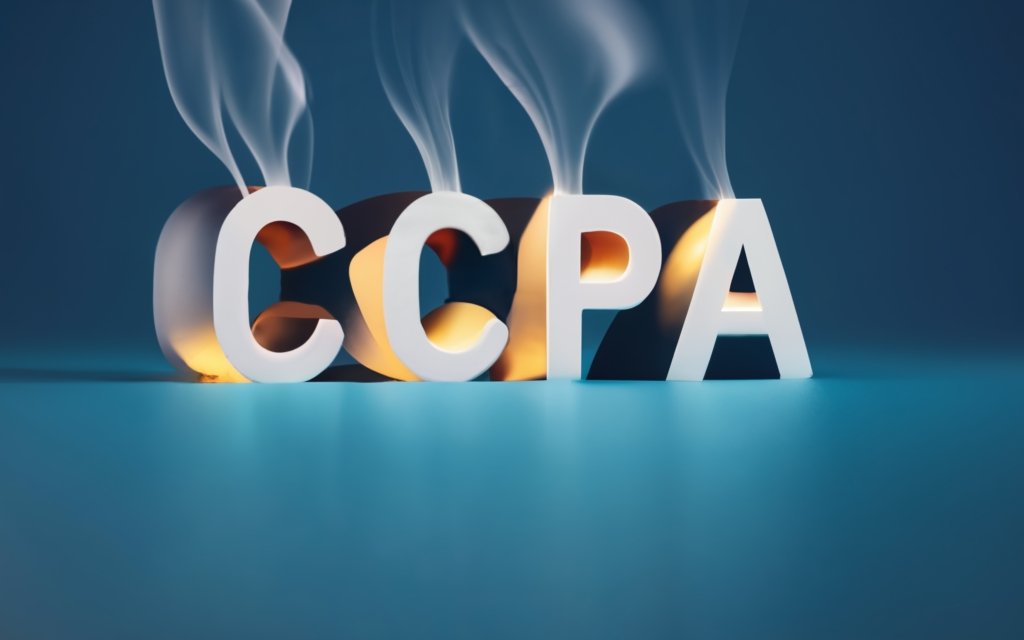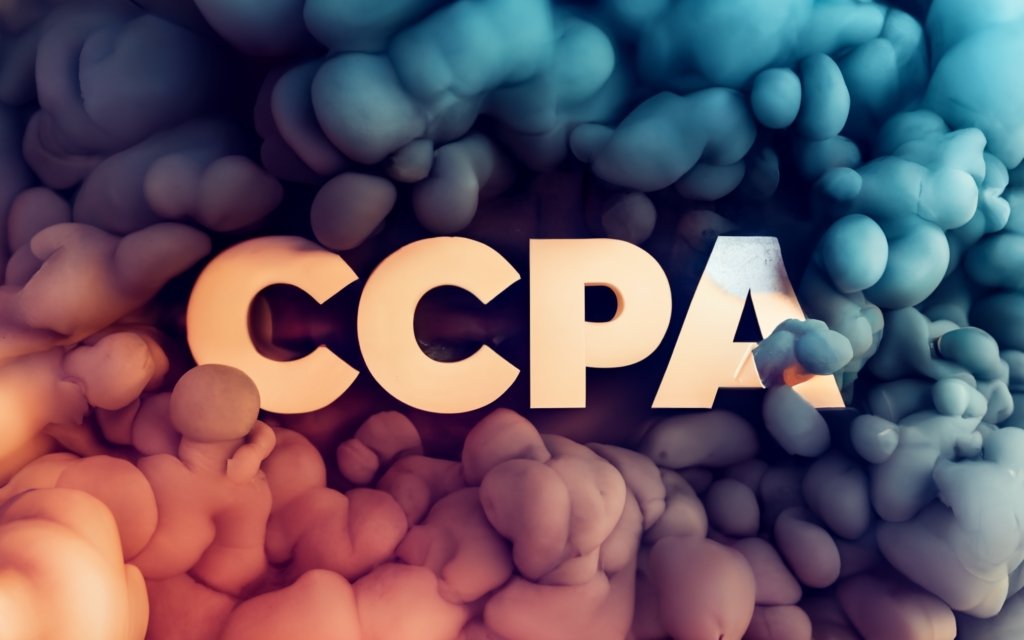California passed groundbreaking privacy laws giving residents new control over their data. How do these regulations impact email marketing? Can your campaigns survive the CCPA?
This comprehensive guide explores everything CCPA means for compliant emailing in the Golden State. Learn CCPA’s history, key provisions, step-by-step compliance checklist, and more – including how it compares with GDPR. Boost security, transparency, and subscriber trust. Discover the easy route to CCPA email success!
An Introduction to California’s Consumer Privacy Laws and Email Marketing Implications
Over the past few years, California has enacted landmark legislation to give state residents more control over their personal data. These new privacy laws have major implications for businesses that collect or use California consumer information – including many common email marketing activities.
In this section, we’ll provide an overview of California’s key consumer privacy laws impacting email marketers: the California Consumer Privacy Act (CCPA) and the California Privacy Rights Act (CPRA). We’ll summarize what they require, who has to comply, and how they affect email marketing practices.
What is the CCPA? A Brief History and Overview
The California Consumer Privacy Act (CCPA) went into effect on January 1, 2020 and enforcement began on July 1, 2020. It has been characterized as the United States’ first “GDPR-like” privacy law, inspired by the European Union’s General Data Protection Regulation (GDPR).
The CCPA emerged in the wake of the Facebook-Cambridge Analytica scandal, where users’ data was misused without consent. It aimed to give California residents stronger data privacy rights and control over how their information gets collected and used by businesses.
Some key provisions of the CCPA include:
- The right for consumers to know what personal data a business collects, how it’s used, and with whom it is shared.
- The right to have personal data deleted by the business upon request.
- The right to opt-out of sale/sharing of personal data with third parties.
- Requiring businesses to disclose what data they collect and inform consumers about their privacy rights.
- Fines and penalties for businesses that violate the law.
How the CCPA Impacts Email Marketing for Businesses
The CCPA introduces requirements that significantly impact email marketing activities like list building, communications, and data management.
For example, the CCPA requires that consumers opt-in specifically to receiving marketing emails. Marketers can no longer add customers to email lists without their explicit consent.
The law also requires honoring opt-out and unsubscribe requests promptly. Businesses must have processes to immediately stop emailing and delete data for consumers who no longer want communications.
When collecting email addresses, businesses must disclose how the information will be used and shared. And consumers have a right to request their data be deleted or stop the sale/sharing of their email address at any time.
Overall, the CCPA establishes standards of transparency and consent around using customer data that force changes to many email marketing tactics.
Who Does the CCPA Apply To? Determining if Your Business is Affected
The CCPA affects for-profit companies that conduct business in California AND meet one of the following thresholds:
- Earn gross revenue above $25 million per year
- Buy, receive, sell, or share personal data of 50,000+ California consumers/households
- Derive 50%+ of annual revenue from selling California consumers’ data
Even if your actual business is located outside of California, if you meet those criteria, you must comply when contacting California email subscribers and customers.
Determining if your business falls under the CCPA can be tricky – it involves analyzing revenue sources and whether your customer base includes enough California data to cross the 50,000 threshold. Consult legal guidance if you are unsure!
Non-compliance can lead to hefty fines and lawsuits, so it’s better to err on the side of caution. If possible, follow CCPA regulations for all your US email marketing activities, not just California campaigns.
The CCPA ushered in a new era of stronger privacy rights and changed how businesses can collect, use, and manage consumer data. While it has created compliance burdens for marketers, following CCPA guidelines ultimately builds trust and loyalty with customers. Understanding the law’s implications enables conscientious marketers to adopt email practices that respect consumer privacy.

Key Requirements for CCPA Email Compliance
Now that we’ve introduced the CCPA and its significance for email marketers, let’s dig into the nitty-gritty of how to actually comply with this law.
While the CCPA affects many aspects of business operations, we’ll focus on key requirements specifically related to managing email subscribers and sending compliant marketing messages.
Providing Clear Notice and Transparency in Email Marketing
One of the core principles of the CCPA is transparency – keeping consumers fully informed about data collection and use. This requirement has several implications for email marketing:
Privacy Policy Changes
Update your privacy policy to accurately disclose what data you collect from California email subscribers, how it’s used, whether it’s sold/shared, and consumers’ privacy rights under the CCPA. Write these disclosures in plain language.
Notice at Collection
When first gathering someone’s email address and opt-in, notify them that by submitting their information, they allow you to add them to your email list. Explain clearly what types of messaging they will receive.
Consent Confirmation
Follow up new opt-ins with a confirmation email that restates the types of emails they are consenting to receive from you. Avoid pre-checked opt-in boxes – make subscribers check the box themselves.
Transactional Emails
If contacting customers for transactional purposes like receipts, shipping notices, password resets, etc., disclose within the email that necessary communications are part of the business relationship.
Unsubscribe and Privacy Links
Include visible unsubscribe and privacy policy links in the footer of all emails so subscribers can easily access these options.
Being transparent about data practices isn’t just an email footer issue – it should infuse your entire email marketing strategy.
Honoring Opt-Out Requests and Unsubscribe Links
One of the cornerstones of CCPA compliance is providing straightforward ways for customers to opt-out of data collection, sale, or marketing communications. As an email marketer, this means honoring unsubscribe and data deletion requests promptly and thoroughly.
Here are some tips:
- Make your mailing list Unsubscribe button highly visible and have it work instantly, with no extra steps required.
- Avoid re-adding users who unsubscribed or trying to win them back – this violates CCPA consent requirements.
- If a user requests data deletion, immediately and permanently remove their email address and any associated data like open/click tracking.
- Tell any third-party vendors or email services with access to the subscriber’s data to also delete it.
- Train customer service staff to quickly honor opt-out and deletion requests received by email, phone, etc.
- Document when and how users opt-out to prove CCPA compliance.
Smooth opt-out and data deletion processes demonstrate respect for subscribers’ privacy choices. This fosters trust in your brand and reduces CCPA violation risks.
Responding to Data Access and Deletion Requests
In addition to opt-out rights, the CCPA grants consumers the right to request details on what personal data a business has collected about them and request deletion of that data.
As an email marketer, you need processes to handle these data requests in a timely manner:
Access Requests
- Be able to provide the personal data associated with an email address, like name, mailing address, phone number, transaction history, etc.
- Compile details on what types of emails the subscriber receives and any tracking or analytics tied to their email activity.
- Under CCPA, you must respond with this data free of charge within 45 days. Maintain easily accessible data mapping to quickly gather subscriber information.
Deletion Requests
- Have an automated system to remove an email address and related data from your mailing list and databases.
- If using a third-party email service, ensure they also delete the information upon request.
- Confirm the completion of the deletion request to the consumer.
Streamlined systems empower your team to promptly fulfill data access and deletion requests, as required by the CCPA.
Restrictions on Selling or Sharing Email Lists
A common but controversial email marketing practice is selling or sharing subscriber lists with third parties, affiliates, and partners.
The CCPA introduces several limitations on this activity:
- You can only sell or share customer email addresses if they have explicitly opted-in to this type of data sharing.
- Your privacy policy and notice at collection must disclose that subscriber emails may be shared with specific third parties.
- Include an easy opt-out link/process for subscribers to halt the sale or sharing of their email address.
- If selling or sharing minors’ emails (users under 16), obtain parental consent first.
- Only share subscriber emails with service providers or contractors who agree to comply with CCPA regulations.
Because email addresses are considered personal information under the CCPA, contacting subscribers on behalf of other brands requires prior consent. Tread carefully here and offer ample opt-outs.
Special Considerations for Emailing Minors
When emailing customers under age 18, marketers have special CCPA compliance responsibilities:
- Obtain verified parental consent before collecting or selling the personal information of children under 13 years old.
- For minors 13-16 years old, obtain consent directly from the minor to collect or sell their data (in addition to any parental consent requirements).
- Include an obvious notice that minors can opt-out or request data deletion at any time.
- Don’t entice minors to provide unnecessary data. Only gather information required to participate in your email programs.
- Take extra precautions like encryption and access controls when storing minors’ data.
- Limit data retention timeframes – don’t keep minors’ personal information indefinitely.
Handle underage subscribers’ information with great care, confirming proper consents are in place and providing ample privacy controls.
Avoiding Discrimination Against Opt-Outs
The CCPA prohibits businesses from discriminating against customers who exercise their privacy rights, such as unsubscribing or requesting data deletion.
In email marketing, this means you cannot:
- Send fewer or lower quality email offers to users who opt-out of certain data collection or sales. Continue providing the same level of communications.
- Charge higher prices, assess penalties, or deny services or goods to customers who opt-out.
- Make opting-out inconvenient, confusing, or difficult compared to signing up.
Essentially, customers who choose to unsubscribe or delete their data should face no negative repercussions – don’t punish them for asserting their CCPA rights!
Ensuring Overall Data Security and Privacy
Though not directly called out in the CCPA, a priority for upholding consumer privacy is keeping personal data secure. Email marketers should follow security best practices like:
- Encrypting email lists and customer data at rest and in transit
- Requiring strong passwords and access controls to access subscriber data
- Restricting internal access to email list databases on a need-to-know basis
- Using reputable email providers who demonstrate stringent security measures
- Having an incident response plan in case of a data breach
Robust security reduces the risk of unauthorized access or theft of subscriber information. Preventative protections build customer trust and help avoid CCPA violations from improper data handling.
When managing an email list and sending marketing messages, adhering to CCPA requirements involves a shift in practices around transparency, consent, data requests, security, and more. Adjusting processes to align with these consumer privacy principles is crucial for legally and ethically contacting your California-based audience.

Step-by-Step Guide to Making Your Email Marketing CCPA-Compliant
Becoming fully CCPA-compliant can feel like a daunting project, especially when it comes to overhauling email marketing systems and procedures.
By breaking down the process into clear action steps, we can make achieving compliance seem much more manageable.
Here is a step-by-step checklist of tasks to complete in order to ensure your email marketing practices adhere to CCPA regulations:
Review Your Email Collection and Opt-In Practices
First, audit how you currently build your mailing list and obtain subscriber consent:
- Document all places/methods where website visitors can opt-in to emails (signup forms, checkboxes, etc).
- Review your opt-in language – does it clearly explain how their email will be used and shared?
- Are you obtaining direct, auditable consent? No pre-checked boxes or implied consent.
- Does your confirmation email restate what communications subscribers are signing up for?
Identify any opt-in practices that lack transparency or fall short of CCPA standards. Then overhaul these areas to gather proper consent upfront.
Evaluate Any Third-Party Email Services or Vendors
If using a third-party email service, advertising network, data management platform, etc, verify:
- They handle California consumer data according to CCPA regulations.
- Their tools provide required privacy disclosures and opt-outs.
- They allow you to delete subscriber data upon request.
Scrutinize partners’ data practices and tools. Renegotiate contracts as needed to maintain CCPA compliance.
Update Your Privacy Policy with CCPA Disclosures
Remember, your privacy policy must disclose:
- What subscriber data you collect and how it’s used generally.
- Whether and why subscriber data might be sold or shared.
- The consumer’s right to request their data be deleted.
- How to submit data requests or opt-out of data sales.
Draft clear, reader-friendly updates covering these CCPA email compliance issues. Prominently display the policy on your website and link to it from emails.
Add a CCPA Compliance Section to Your Website
Create a new website page explaining CCPA consumer rights and your compliance practices. Include:
- Summary of the CCPA and what rights it grants California residents regarding their data.
- Explanation of how your business allows consumers to execute those rights.
- Contact form, phone number, etc. for submitting data requests and opt-outs.
Make this page easy to access from your website footer and privacy policy.
Implement Data Mapping to Track Customer Information
To facilitate data access and deletion requests, build a data map that tracks:
- All subscriber personal information tied to each email address.
- Where and how that data is stored in your systems and databases.
- Which third party services also have access to each type of data.
This enables you to quickly compile and/or purge customer information per CCPA requests. Regularly audit and update the mapping.
Build Opt-Out and Data Request Processes
Construct internal processes enabling your team to promptly handle:
- Opt-out requests received via email, phone, chat, etc.
- Data access requests to provide customers their information.
- Data deletion requests to permanently purge subscriber information.
Document procedures, assign responsibilities, integrate systems, and train staff on managing these CCPA consumer requests.
Train Employees on Proper CCPA Compliance Procedures
Educating your team is crucial for success. Conduct CCPA training on:
- The law’s requirements, penalties, and consumer rights.
- Your company’s specific compliance practices and obligations.
- How to properly respond to opt-out requests, data requests, etc.
- Secure data handling procedures to prevent unauthorized access or sharing.
Update internal policies and handbooks to include CCPA compliance guidelines. Periodic training refreshers help keep the law top of mind.
Following this checklist enables you to systematically review your email program against CCPA requirements and implement necessary improvements. Although attaining full compliance takes effort, each step you complete brings you closer to legally and ethically collecting, using, and managing your subscribers’ data.

CCPA Violations and Penalties – What Happens if You Don’t Comply?
What exactly happens if you fail to comply with CCPA regulations as an email marketer? In this section, we’ll explore how the law defines violations, the fines that may be levied as a result, and additional downsides like lawsuits and reputational harm.
Understanding the ramifications of CCPA non-compliance can help underscore why making the effort to properly align your email practices with the law matters.
Definition of a CCPA Violation
The CCPA gives consumers specific rights around their data privacy. If a business fails to provide those required rights, they are committing a legal violation.
Some examples of CCPA violations relevant to email marketing include:
- Not providing an easy and obvious way for subscribers to opt-out of marketing emails or sales/sharing of their email address.
- Continuing to email a consumer or retain their data after they have unsubscribed or requested deletion.
- Refusing to promptly disclose or delete a consumer’s personal information upon request.
- Selling or sharing customer email addresses without first obtaining explicit opt-in consent.
- Failing to notify subscribers about their CCPA rights or your data practices.
- Discriminating against consumers who choose to exercise their CCPA privacy rights by unsubscribing or opting-out.
- Suffering a data breach involving subscribers’ personal information due to negligent security practices.
Penalties and Fines for CCPA Non-Compliance
Intentionally and willfully violating CCPA can lead to civil penalties imposed by the California Attorney General’s office of:
- $2,500 per violation
- $7,500 per intentional violation
Additionally, subscribers can pursue legal action against non-compliant companies. If sued in a class action, you may have to pay:
- $100 – $750 per consumer per incident or
- Actual damages (whichever is greater)
For a large email list, these statutory damages quickly add up. Just one CCPA lawsuit loss could potentially cost an email business hundreds of thousands – if not millions – of dollars.
Lawsuits and Class Action Risks
In addition to state-level penalties, the CCPA opens the door for subscribers to sue companies over privacy violations and potentially join class action lawsuits.
Even just a few disgruntled subscribers can spark litigation that ends up including your entire customer base located in California. For email marketers, class actions often focus on violations like:
- Collecting and selling customer data without consent
- Ignoring unsubscribe or data deletion requests
- Suffering a breach of subscriber information
Avoiding CCPA lawsuits protects your business from massive legal judgments and settlement costs. It also saves you from negative public scrutiny if the case ends up publicized in the media.
Reputational Damage and Loss of Consumer Trust
Lawsuits and fines are not the only fallout from CCPA non-compliance. Privacy violations, security breaches, or ignoring opt-out requests causes significant reputational harm.
Subscribers will likely lose all trust in you if you mishandle their data or disregard their requests for privacy. Even if not made public, complaints from angry customers can quickly tank your brand image.
This loss of consumer confidence has lasting impacts beyond just hurting email metrics. Existing customers may stop engaging with your business entirely. Negative experiences spread through word-of-mouth and online reviews, deterring potential new subscribers.
In summary, flouting CCPA regulations has real monetary and reputational costs for email marketers. On the other hand, respecting California residents’ privacy rights builds immense goodwill. When controlling their own data, satisfied subscribers are more likely to open, click, share, and generally engage with your emails. Think of CCPA compliance as an investment in your brand, not just a legal obligation!

CCPA vs. GDPR – How California Privacy Law Compares to the EU
Since the CCPA is modeled after the European Union’s General Data Protection Regulation (GDPR), the two have considerable overlap. But there are also critical differences email marketers should understand.
In this section, we’ll break down the similarities and differences between these landmark data privacy laws. We’ll also provide tips for achieving compliance under both regulatory regimes.
Similarities Between CCPA and GDPR
At their core, the CCPA and GDPR share the same goals around enhancing consumer privacy rights and control over personal data.
Major similarities relevant to email marketing include:
- Opt-in consent – Both require clear, auditable consent from users to process their data, including contacting them via email marketing. No more pre-checked boxes or implied consent.
- Right to access – Consumers can request details on what personal data a business has collected about them and how it’s used.
- Right to delete – Individuals can request their personal information be permanently deleted.
- Data portability – Consumers have a right to receive their data from a business and have it transferred to another service.
- Security – Businesses must implement reasonable data security safeguards.
- Breach notification – Consumers must be notified in case of a security breach impacting their personal data.
- Privacy by design – Data protection must be built into business practices and systems from the start, not an afterthought.
While specifics vary, the CCPA and GDPR establish the same broad rights around data privacy that impact email programs.
Key Differences Between the Regulations
Despite the parallels, there are some notable differences between CCPA and GDPR:
- Territorial scope – CCPA is limited to California residents, while GDPR covers all EU data subjects.
- Business scope – GDPR applies to all companies processing EU data. CCPA only affects businesses with significant California consumer data.
- Consumer rights – GDPR has more explicit individual rights, like the right to rectify inaccurate data and restrict processing.
- Children’s data – GDPR sets the child age threshold at 16. CCPA uses 13.
- Penalties – GDPR fines are tied to revenue. CCPA has fixed per-violation fines.
- Private right of action – Only CCPA currently permits individual lawsuits for non-compliance.
- Data transfers – GDPR has strict regulations on transferring data outside the EU. CCPA does not address international data flows.
These nuances mean 100% GDPR compliance doesn’t guarantee full CCPA compliance, and vice versa. But broadly, the core privacy protections are aligned.
Achieving Compliance Under Both Frameworks
For multinational companies, it’s wise to take a “compliance-plus” approach that satisfies both GDPR and CCPA:
- Provide GDPR-grade transparency and consent tools for all web visitors and email subscribers, regardless of geography.
- Allow all individuals, not just Europeans and Californians, to access their data and make deletion requests.
- Restrict data sale and transfers to only what is absolutely necessary for operations.
- Implement rigorous security controls like encryption that satisfy both standards.
- Clarify in your privacy policy what rights individuals have under each law.
Though complex, building privacy policies, systems, and processes robust enough to comply with both CCPA and GDPR ensures you have world-class data practices that respect customers globally. And staying on top of each framework’s evolving requirements equips you to adapt as more data privacy laws emerge worldwide.

Looking Ahead – Future Outlook and Changes to Expect
The CCPA is still in its infancy, having just gone into enforcement in 2020. We can expect ongoing changes and evolution to California’s privacy laws that email marketers must track and adapt to.
In this section, we’ll explore what’s on the horizon when it comes to potential CCPA amendments, federal privacy legislation, consumer attitudes, and the overall regulatory landscape.
Potential CCPA Amendments on the Horizon
While no major CCPA revisions have been passed yet, California legislators have proposed several bills to expand the law’s scope and protections.
Possible amendments on the table include:
- Expanding the definition of “personal information” to include more connected device and online tracking data.
- Reducing the threshold for the number of consumers needed to trigger compliance from 50,000 down to 25,000.
- Adding restrictions on using automated systems to make decisions about consumers.
- Creating a state-level “Do Not Sell” list similar to the federal “Do Not Call” registry.
- Extending CCPA-like rights to employees and job applicants regarding their personal data held by employers.
Several other states are also drafting CCPA-like privacy bills, like Virginia and New York. Email marketers across the US should monitor legislative moves to expand data privacy rights.
Possibility of a Federal Privacy Law
While CCPA only affects California residents right now, there is increased talk of enacting a national consumer data privacy law at the federal level.
So far, no federal law has passed, but serious proposals are being discussed that would extend GDPR-like rights across the entire country. This could happen in the next few Congressional sessions.
If enacted, a federal law would likely preempt state regulations like CCPA and introduce one national standard for data privacy. However, it may be relatively similar to CCPA in the rights granted to individuals over their data.
Growing Privacy Concerns Among Consumers
Surveys show consumers are increasingly wary of how companies use and protect their personal information. Data privacy is now a major reputational issue that can erode customer trust if handled poorly.
This means tolerances for sloppy email marketing practices like spamming or ignoring unsubscribe requests are lower than ever. There is greater pressure on brands to be transparent about data usage and give individuals control.
In this climate, the wise email marketer not only complies with current regulations like CCPA but exceeds them in terms of putting subscribers first. Prioritizing consent and privacy builds loyalty.
The Path Towards Stronger Data Regulations
Stepping back, the GDPR and CCPA represent a broader societal move towards more stringent oversight and individual rights related to consumer data.
Driven by high-profile breaches, technology abuses, and growing unease with extensive corporate data collection, regulation seems inevitable. More laws constraining how personal information gets used for marketing purposes are likely coming down the pike.
Astute email marketers stay ahead of the curve on privacy laws to ensure they can adeptly comply. Building ethical, transparent relationships with subscribers insulates you from rocky regulatory changes. Your brand reputation and resilience depends on data practices that put people first, not loopholes.
Though the future is hard to predict precisely, expect growing data privacy and consent requirements for email marketing in California and beyond. With vigilance and respect for individuals, conscientious marketers can adapt and thrive in this new paradigm.

Conclusion and Key Takeaways for CCPA Email Compliance
In this comprehensive guide, we’ve covered everything email marketers need to know about achieving CCPA compliance, from the background of the law to specific tactics for aligning your practices with California privacy rights.
To recap, here are the key lessons to help your business handle subscriber data legally, ethically, and profitably:
Essential Steps for Any Business to Take
- Review your opt-in flows and confirm they gather direct consent with full transparency.
- Audit third-party email vendors; update contracts as needed.
- Create data maps to easily locate/delete subscriber info upon request.
- Build efficient processes for honoring opt-outs and data deletion requests.
- Update privacy policies to fully disclose data practices and CCPA rights.
- Add a CCPA compliance section to your website for California audiences.
- Train team members on securely handling subscriber data per the law.
- Keep monitoring the law for modifications that may impact your compliance needs.
Benefits of Taking a Proactive Approach
Getting ahead of CCPA requirements, rather than dragging your heels, provides several advantages:
- Reduces legal and financial risks from penalties or lawsuits
- Builds subscriber trust and loyalty by respecting their privacy
- Reinforces your brand reputation as an ethical, caring business
- Puts processes in place to easily adapt as regulations expand
When you focus on people ahead of profits, customers inherently respond positively. Lean into CCPA as an opportunity to improve.
Leveraging CCPA Compliance to Build Trust
At the end of the day, view CCPA not as a burden but as a framework to strengthen subscriber relationships.
Use compliance as a chance to evaluate and improve your subscriber experience – to show your audience they can trust you with their data and attention. Don’t exploit loopholes. Exceed expectations around transparency and privacy.
By internalizing a mindset that data privacy is about protecting people – not preventing your access to data – you can turn compliance into an asset.
When consumers feel respected, they Reward your business with engagement. And isn’t that the email marketer’s end goal?
Hopefully this guide provided a helpful CCPA overview and compliant email marketing best practices. Remember to consult legal counsel with any specific questions on applying the law to your business.
And above all, maintain good faith with your subscribers. When you honor their privacy, they’ll honor your brand.

Frequently Asked Questions about CCPA Email Marketing Compliance
To wrap up this guide, let’s review some of the common CCPA email compliance questions that marketers have:
Do I need to get consent again from existing subscribers?
You do not necessarily have to re-acquire consent from all current subscribers. The CCPA does not require re-permissioning existing email lists.
However, audit your list to ensure all subscribers originally opted-in under CCPA standards, like direct checkboxes. Document consent records just in case.
For any ambiguous opt-ins, best practice is to send a re-permission email explaining CCPA and confirming they still want to receive your emails.
How should I document consent under CCPA?
Keep records that prove subscribers consented to receive your emails, like:
- Date, time, and source of opt-in
- Screenshots showing your opt-in language and checkboxes
- Confirmation emails reiterating their consent
- Logs of consent from offline sign-ups like events
Document unsubscribes and opt-outs too. Retain for at least 24 months after an individual’s last interaction.
How do I handle browser Do Not Track requests?
Under CCPA, honoring Do Not Track browser settings is not strictly required. However, it’s smart to integrate systems that check for Do Not Track and halt data collection from those users.
This preserves consumer trust. You avoid collecting data from those expressing disinterest – even if allowed under the letter of the law.
Could my email practices cause a data breach?
Yes, CCPA provides a private right of action for consumers to sue if a business suffers a breach due to negligence.
Examples that may open you to lawsuits include:
- Saving subscribers’ email addresses and info in unencrypted plain text
- Allowing improper internal access to subscriber data
- Using default or easy-to-guess passwords on tools like your ESP
- Failing to use available security protections like 2-factor authentication
Prioritize email list security!
How do I know if a third-party vendor is CCPA compliant?
Ask vendors directly about their specific CCPA compliance practices, like:
- What policies and controls do they have to allow opt-outs and data deletion?
- How is data secured, accessed, and managed internally?
- Have they updated contracts to cover CCPA responsibilities for your subscribers’ data?
Perform due diligence even on big brand vendors. Don’t assume all partners obey privacy regulations.
By knowing the facts around CCPA email compliance, you can approach your marketing with confidence. Remember, aligning your practices with these data privacy principles benefits your brand and bottom line in the long run.
Other Relevant Questions about CCPA Email Compliance
Does the CCPA apply to my small business?
The CCPA only applies to companies exceeding $25 million in annual revenue or those handling 50,000+ California consumer records. If you fall under these thresholds, you likely don’t need to comply.
Do I need to get opt-in consent from existing subscribers?
You do not necessarily have to re-permission your existing list. But best practice is to audit that all subscribers originally opted-in properly and document their consent.
How do I handle browser Do Not Track requests?
Honoring Do Not Track browser settings is not legally required but builds goodwill by respecting privacy preferences. Consider integrating systems to halt data collection from Do Not Track users.
What should our privacy policy say about CCPA?
Your privacy policy must summarize what subscriber data you collect, how it is used, whether it is sold/shared, and outline the CCPA rights of California residents.
How do I respond to a data access or deletion request?
Have standardized procedures to authenticate, fulfill, and document data access and deletion requests within the CCPA’s required 45 day timeframe.
Can I store subscriber data outside the US?
Unlike GDPR, CCPA does not restrict international data transfers. But storing data overseas may complicate compliance with data requests. Consult legal counsel.
How long do I need to keep consent records?
Retain subscriber consent records for at least 24 months after their last interaction or data deletion request.
Are there CCPA exemptions for certain data?
Some data like medical information or personal data governed by other sector-specific privacy laws may be exempt. Consult an attorney about exemptions applicable to your business.
What are some CCPA email compliance best practices?
- Double opt-in for new subscribers
- Data mapping to track subscriber info
- Consent/unsubscribe logs
- Staff training on secure handling
- Encryption and data access controls
- Vendor audits and compliance reviews
Summary for CCPA Email Marketing Compliance
If you need to comply with CCPA regulations for your email marketing, here are the core lessons to remember:
- Obtain direct opt-in consent from California subscribers with clear disclosures.
- Honor unsubscribe requests instantly – no re-adding people who opt-out.
- Allow consumers to access and delete their personal data.
- Restrict marketing emails or data sharing without explicit permission.
- Implement proper data security protections like encryption.
- Disclose your data practices and CCPA rights in your privacy policy.
- Add a CCPA compliance section to your website.
- Build processes to handle consumer rights requests efficiently.
- Train staff on secure, ethical data handling aligned with CCPA.
- Document consent and develop subscriber data maps.
- Review third-party email vendors and services for CCPA compliance.
- Monitor for potential CCPA modifications and update practices accordingly.
- See compliance as an opportunity to improve trust and transparency.
With vigilance and respect for subscriber privacy, email marketers can achieve CCPA compliance while building loyalty and protecting their brand reputation. Keep the law’s principles of transparency and individual control at the heart of your data practices.

